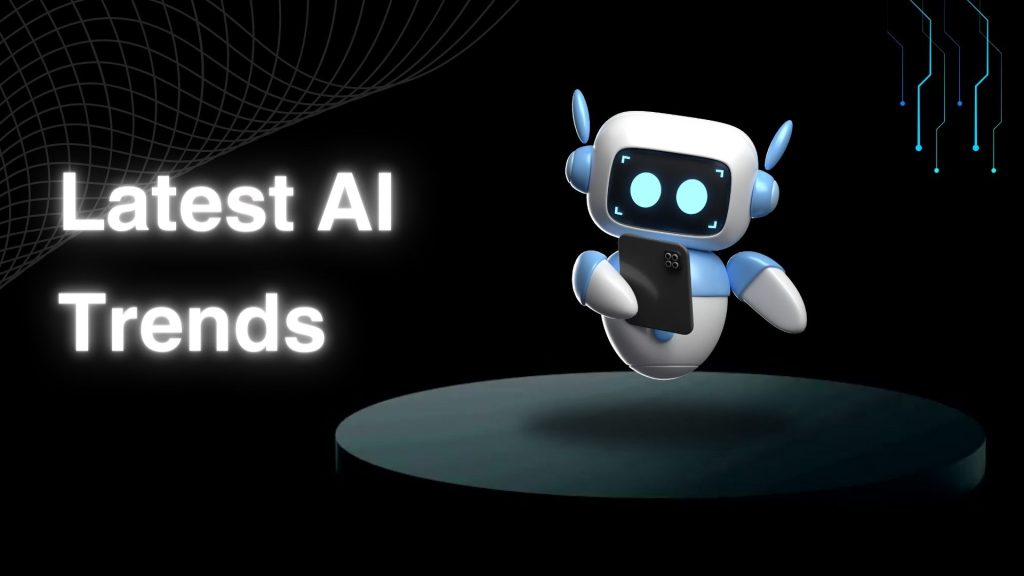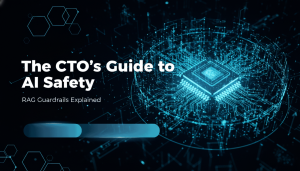Are you interested in the latest AI trends? Artificial Intelligence is changing the world we live in at a rapid pace, and it’s essential to stay up-to-date with the latest developments. In this blog, we will uncover the power of AI and how it is evolving. We will also talk about deep learning revolution, noteworthy AI tech giants and innovations, AI in music and entertainment industry, natural language processing, image and content generation, speech models, skin tone analysis and prominent AI YouTube channels to follow. Additionally, we will provide insights into what we can expect from AI in the near future. Keep reading to learn more about these exciting trends that are transforming our lives.
Uncovering the Power of AI
AI is revolutionizing industries, transforming how we live and work. Its applications are vast, spanning healthcare, finance, and transportation. AI enhances decision-making, automates processes, and improves efficiency. With advancements in machine learning and NLP, AI is becoming sophisticated, presenting new opportunities for innovation and growth.
The Evolution of AI: A Brief Overview
AI has evolved significantly since its inception in the 1950s, progressing from rule-based systems to the development of neural networks and deep learning algorithms. Today, AI encompasses a multitude of technologies, including machine learning, natural language processing, and robotics. The future holds endless possibilities for further advancements and applications in the realm of AI.
AI in 2023: The Current Scenario
AI adoption is rising, with companies leveraging it for competitive advantage. The global market is expected to reach new heights, and AI is being used to streamline operations, improve customer experiences, and drive innovation. Ethical considerations and data privacy challenges are being addressed to ensure responsible AI use. As AI matures, we can expect greater integration and impact in various domains.
Deep Learning Revolution
Deep learning, a subset of machine learning, focuses on neural networks with multiple layers. It has enabled breakthroughs in image recognition, speech synthesis, and natural language understanding. With large datasets and advanced hardware, deep learning models excel at complex pattern extraction and accurate predictions. Its impact extends across industries, from healthcare to autonomous vehicles.
Deep Learning in AI: What’s New?
Delving into the latest advancements in deep learning, researchers are exploring groundbreaking architectures and techniques. Exciting developments include generative AI for creating new content, transfer learning for leveraging pre-trained models, and the focus on adversarial attacks and defenses. Another key area is explainable AI, which aims to enhance transparency and interpretability in deep learning models.
How Deep Learning is Changing the AI Landscape?
Deep learning is revolutionizing the AI landscape by enabling breakthroughs in computer vision and natural language processing. Tasks like image recognition and language translation, which were once challenging for AI, can now be done with high accuracy. With its scalability and potential for handling large amounts of data, deep learning is driving advancements in healthcare, finance, and cybersecurity. Ongoing research in deep learning promises even more exciting possibilities for the future of AI.
Noteworthy AI Tech Giants and Innovations
Google has spearheaded AI research with projects like Google Brain and DeepMind. Microsoft is leveraging its expertise in cloud computing and natural language understanding to heavily invest in AI. Amazon uses AI to enhance products and services, from personalized recommendations to voice assistants. These tech giants drive innovations in computer vision, natural language processing, and robotics, shaping technology’s future and influencing industries.
Google’s AI Advances: Leading the Future
Google’s AI research spans various domains like computer vision, NLP, and reinforcement learning. Projects like AlphaGo and AutoML showcase AI’s power in complex tasks and automation. Google’s advancements have enhanced search algorithms, voice recognition, and machine translation, paving the way for new applications and impacting the industry.
Microsoft’s Leap in AI Research
Microsoft’s AI research encompasses conversational AI, computer vision, and machine learning. Projects like Microsoft Cognitive Services and Azure Machine Learning provide developers with tools for building AI solutions. From Office 365 to Azure, Microsoft’s AI innovations span across its products, driving advancements in healthcare, autonomous systems, and accessibility.
Amazon’s Novel AI Methods: A Game Changer
Amazon has revolutionized AI with innovations such as Amazon Alexa and advanced recommendation systems. Their focus on natural language understanding has led to sophisticated voice assistants. By leveraging AI, they have enhanced logistics and supply chain operations, enabling faster deliveries. Additionally, their machine learning models power personalized recommendations, reshaping e-commerce and customer service.
AI in Music and Entertainment
AI technology is revolutionizing the music industry by personalizing music recommendations based on user preferences. It can even compose instrumental music without human intervention. AI-powered music platforms are expanding creative possibilities, shaping the future of entertainment.
If you’re interested in how AI is transforming the entertainment industry as a whole, check out our blog on AI in Entertainment: Revolutionizing the Industry.
Spotify’s AI: Transforming Music Experience
Spotify utilizes AI algorithms to analyze user data, curating personalized playlists and predicting user preferences for new song suggestions. The AI-driven Discover Weekly feature is popular among subscribers, and Spotify also creates mood-based playlists for a tailored listening experience. AI enhances the music recommendation system, engaging users and transforming the music experience.
Role of AI in Creating Instrumental Music
AI algorithms have the ability to generate original instrumental music compositions, spanning various genres. This AI-generated music can be utilized in films, advertisements, and other creative projects, providing endless possibilities for musicians and composers to explore new forms of artistic expression.
AI in Natural Language Processing
AI has revolutionized communication through advancements in natural language processing (NLP). Microsoft’s Project InnerEye exemplifies collaborative NLP frameworks. Language translation and interpretation tools powered by AI bridge communication gaps globally. NLP enables machines to understand and respond to human language, while AI-powered chatbots enhance customer support and user experience.
Microsoft’s AI Approach to Collaborative NLP Development
Microsoft leverages Azure Cognitive Services, enabling collaborative NLP development. Their AI-powered tools, like Language Understanding Intelligent Service (LUIS), facilitate NLP application development. Microsoft’s NLP frameworks empower developers to build smart language processing applications, including sentiment analysis, entity recognition, and language translation. These advancements drive innovation across industries.
AI’s Impact on Language Translation and Interpretation
AI’s impact on language translation and interpretation is immense. AI-based tools like Google Translate provide real-time and accurate translations. The use of NLP algorithms enhances the fluency and accuracy of machine translations, making global collaboration and cross-cultural communication easier than ever before.
AI in Image and Content Generation
AI algorithms have revolutionized image and content generation, producing realistic visual content for various applications. Google’s RealFill utilizes AI to complete missing parts of images, while DreamGaussian introduces breakthrough techniques for 3D content generation. This AI-driven innovation has redefined the boundaries of creativity in gaming, advertising, and virtual reality.
Google’s RealFill: A New Age AI Approach
Google’s RealFill leverages AI to intelligently fill in missing parts of images. AI algorithms analyze context and surrounding elements, generating realistic completions. RealFill reduces editing effort and enhances visual storytelling. AI-powered image completion tools save time, improving productivity for designers. Advancements in AI-driven image completion techniques open new possibilities.
DreamGaussian: A Breakthrough in 3D Content Generation
DreamGaussian revolutionizes 3D content generation with cutting-edge AI techniques, empowering artists and designers to bring their ideas to life. The AI algorithms in DreamGaussian enable the creation of highly detailed and realistic 3D models, simplifying the process of building virtual environments. This breakthrough combination of AI and 3D content generation opens up exciting new possibilities across various industries.
AI in Speech Models
AI-based speech models have revolutionized speech recognition systems, enabling virtual assistants like Siri and Alexa to understand and respond to human speech. NLP techniques combined with AI ensure accurate speech-to-text transcription. Voice synthesis technology powered by AI creates natural-sounding human-like voices, enhancing accessibility and communication for all.
Open Whisper-Style Speech Model: A New Direction
AI models like Open Whisper are reshaping speech synthesis, pushing the boundaries of natural language generation. Open Whisper’s multidimensional approach enables more realistic and expressive speech, offering endless possibilities for voice assistants, audiobooks, and more. Advances in AI speech synthesis are transforming technology interactions.
How AI is Influencing Speech Recognition Technologies?
AI is revolutionizing speech recognition technologies by improving accuracy and speed. Machine learning enables systems to adapt and learn from user patterns, while natural language processing enhances capabilities. AI-powered speech recognition is integrated into various applications, bridging the gap between human speech and machine understanding.
AI in Skin Tone Analysis
AI algorithms accurately classify and analyze skin tones, finding applications in cosmetics, dermatology, and personalized healthcare. Machine learning models trained on diverse datasets ensure unbiased results, providing valuable insights for skincare product development. AI empowers individuals to make informed decisions about their skincare routine.
If you’re interested in exploring more about AI’s role in healthcare, check out our comprehensive guide on AI in Healthcare.
Beyond the Fitzpatrick Scale: Sony’s Multidimensional Approach
Sony takes skin tone analysis to a new level. Their AI algorithms consider texture, transparency, and evenness to provide a comprehensive analysis. This multi-dimensional approach enhances accuracy and versatility, driving innovation in beauty and healthcare.
Prominent AI YouTube Channels
Discover a wealth of AI knowledge and tutorials on reputable YouTube channels. Stay updated on the latest AI trends and gain insights from industry experts and researchers. Learn about machine learning, data science, and AI applications through engaging videos that make AI education accessible to everyone.
Notable AI YouTube Channels to Follow
Looking to expand your knowledge of AI? Check out these notable AI YouTube channels: ‘World of AI’ covers diverse topics like machine learning, robotics, and NLP. ‘Data School’ offers tutorials on data science, ML, and Python. ‘Lex Fridman’ features interviews with AI experts. ‘Springboard’ provides insights into AI, data engineering, and computer science. ‘Artificial Intelligence – All in One’ covers AI algorithms, techniques, and best practices.
How YouTube is Democratizing AI Knowledge?
YouTube plays a vital role in making AI knowledge accessible to all. With free tutorials and videos, YouTubers offer unique insights and hands-on experience in the field. The platform’s algorithm recommends relevant AI content, allowing users to stay updated. Additionally, YouTube fosters collaboration and knowledge sharing within the AI community.
What Can We Expect from AI in the Near Future?
Expect AI to reshape industries and improve daily life. Healthcare, transportation, and customer service will be revolutionized. Virtual assistants will become more intelligent and human-like. Breakthroughs in generative AI and deep learning will unlock new possibilities. Integration with emerging technologies will drive real-world innovation.
Conclusion
In conclusion, the field of AI is constantly evolving and introducing new advancements. From deep learning and natural language processing to image generation and speech recognition, AI is making significant progress in various industries. Tech giants like Google, Microsoft, and Amazon are leading the way with their innovative AI technologies. Furthermore, AI is also making its mark in music and entertainment, revolutionizing the way we experience and create content. Additionally, AI is even being used for skin tone analysis, offering a multidimensional approach to understanding diversity. To stay updated on the latest AI trends, make sure to follow prominent AI YouTube channels. As the future unfolds, we can expect AI to continue transforming industries and enhancing our everyday lives.
The GoodFirms article “Know AI CRM to Know Your Customers” highlights Techwink Services as a Research Partner. You can read the full article here.



